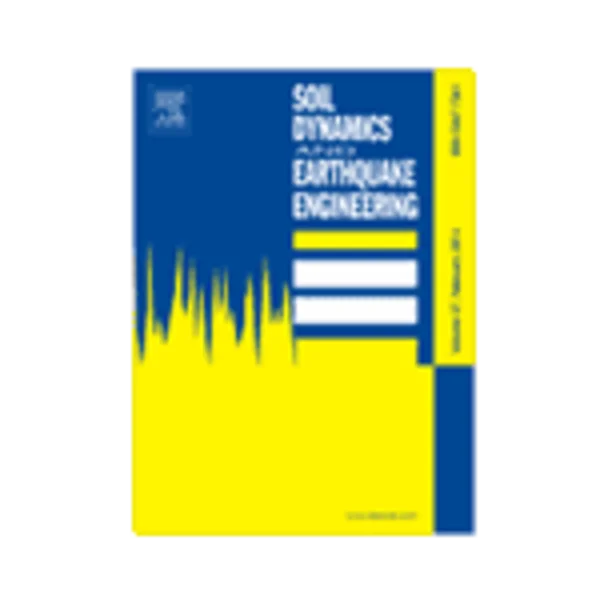-
evaluation of temperature and freeze–thaw effects on excess pore pressure generation of fine-grained soils
جزئیات بیشتر مقاله- تاریخ ارائه: 1392/07/24
- تاریخ انتشار در تی پی بین: 1392/07/24
- تعداد بازدید: 982
- تعداد پرسش و پاسخ ها: 0
- شماره تماس دبیرخانه رویداد: -
the november 3, 2002 denali-alaska earthquake (mw=7.9) caused significant liquefaction associated damage to various infrastructure built on fine-grained soils. the seismic response, liquefaction potential, and excess pore pressure generation of soils in cold regions, especially those of fine-grained nature, have not been studied thoroughly and therefore are not well-understood. this paper presents results from an extensive laboratory study on the characteristics of excess pore pressure generation and liquefaction potential of fine-grained soils. laboratory-constituted soils specimens were tested in four categories: (1) tests on specimens subjected to no thermal conditioning or freeze–thaw cycles; (2) tests on specimens conditioned at 24, 5, 1, 0.5, and −0.2 °c; (3) tests on specimens subjected to 1–4 freeze–thaw cycles; and (4) tests on specimens conditioned at near-freezing temperatures of 0.5 and −0.2 °c through different freeze–thaw paths. strain-controlled, undrained, cyclic triaxial tests were performed at shear strain levels of 0.005–0.8%. specimens conditioned at different temperatures were found to generate significantly different pore pressures with cyclic loading. the excess pore pressure generation at near or slightly below freezing was found to change dramatically. a transitional change in the dynamic soil behavior, attributed to unfrozen- or frozen-dominant pore water, was discovered. the threshold shear strain was also found to be influenced by the temperature. subjecting the soil specimens to 1, 2 and 4 freeze–thaw cycles caused a reduction in excess pore pressure generation and slight change in the threshold shear strain. the temperature conditioning path to reach the target temperature was found to be important on the development of excess pore pressure at near and slightly below-freezing temperatures.
مقالات جدیدترین رویدادها
-
استفاده از تحلیل اهمیت-عملکرد در ارائه الگوی مدیریت خلاقیت سازمانی و ارائه راهکار جهت بهبود
-
بررسی تاثیر ارزش وجوه نقد مازاد بر ساختار سرمایه شرکت های پذیرفته شده در بورس اوراق بهادار تهران
-
بررسی تأثیر سطح افشای ریسک بر قرارداد بدهی شرکت های پذیرفته شده در بورس اوراق بهادار تهران
-
بررسی تأثیر رتبه بندی اعتباری مبتنی بر مدل امتیاز بازار نوظهور بر نقد شوندگی سهام با تأکید بر خصوصی سازی شرکت ها
-
تأثیر آمیخته بازاریابی پوشاک ایرانی بر تصویر ذهنی مشتری پوشاک ایرانی (هاکوپیان)
-
مقایسه تاثیر انواع الیاف بر مشخصات بتن
-
تحلیل دینامیکی پل های مورب با سخت کننده های طولی تحت بارهای متحرک به روش نوار محدود به منظور تعیین ضرایب تقویت دینامیکی
-
گزارش 1 مورد شوانوما با تظاهر توده زبانی
-
blind bolted moment connection to unfilled hollow section columns using extended t-stub with back face support
-
effects of y2o3 nanoparticles on growth behaviors of cu6sn5 grains in soldering reaction
مقالات جدیدترین ژورنال ها
-
مدیریت و بررسی افسردگی دانش آموزان دختر مقطع متوسطه دوم در دروان کرونا در شهرستان دزفول
-
مدیریت و بررسی خرد سیاسی در اندیشه ی فردوسی در ادب ایران
-
واکاوی و مدیریت توصیفی قلمدان(جاکلیدی)ضریح در موزه آستان قدس رضوی
-
بررسی تاثیر خلاقیت، دانش و انگیزه کارکنان بر پیشنهادات نوآورانه کارکنان ( مورد مطالعه: هتل های 3 و 4 ستاره استان کرمان)
-
بررسی تاثیر کیفیت سیستم های اطلاعاتی بر تصمیم گیری موفق در شرکتهای تولیدی استان اصفهان (مورد مطالعه: مدیران شرکتهای تولیدی استان اصفهان)
-
محدودیت فروش کوتاه مدت و خطر سقوط قیمت سهام با تاکید بر کارایی سرمایه گذاری
-
طراحی الگوی فرایند دانش آفرینی در دانشگاه بر اساس رویکرد آمیخته
-
بررسی اثر اقتصاد سیاسی پشت سر استقلال بانک مرکزی
-
خسارت ناشی از تأخیر در تحویل کالا و خسارات معنوی و اقتصادی در خصوص حمل و نقل دریایی
-
ارتباط بین استقرار مدیریت دانش و توانمندسازی با عملکرد شغلی کارکنان




سوال خود را در مورد این مقاله مطرح نمایید :